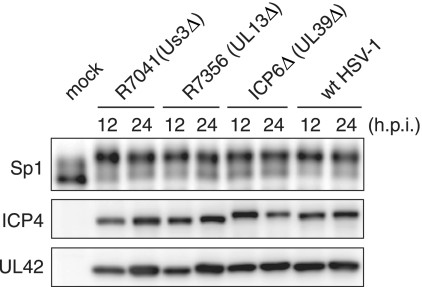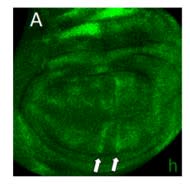
Cat. #154743
Anti-Integrin Beta-1D (CD29) [2B1]
Cat. #: 154743
Sub-type: Primary antibody
Unit size: 100 ug
Availability: 10-12 weeks
Target: Integrin ?1D
Class: Monoclonal
Application: IHC ; WB
Reactivity: Dog ; Human ; Mouse ; Pig
Host: Mouse
£300.00
This fee is applicable only for non-profit organisations. If you are a for-profit organisation or a researcher working on commercially-sponsored academic research, you will need to contact our licensing team for a commercial use license.
Contributor
Inventor: Arnoud Sonnenberg
Institute: Netherlands Cancer Institute
Tool Details
*FOR RESEARCH USE ONLY
- Name: Anti-Integrin Beta-1D (CD29) [2B1]
- Alternate name: ITGB1; MSK12
- Tool sub type: Primary antibody
- Class: Monoclonal
- Conjugation: Unconjugated
- Strain: Balb/c
- Reactivity: Dog ; Human ; Mouse ; Pig
- Host: Mouse
- Application: IHC ; WB
- Description: ITGB1 is a cell surface receptor that in humans is encoded by the ITGB1 gene. This integrin associates with integrin alpha 1 and integrin alpha 2 to form integrin complexes which function as collagen receptors. It also forms dimers with integrin alpha 3 to form integrin receptors for netrin 1 and reelin. These and other integrin beta 1 complexes have been historically known as very late activation (VLA) antigens. Integrin beta 1 is expressed as at least four different isoforms. In cardiac muscle and skeletal muscle, the integrin beta-1D isoform is specifically expressed, and localizes to costameres, where it aids in the lateral force transmission from the Z-discs to the extracellular matrix. Abnormal levels of integrin beta-1D have been found in limb girdle muscular dystrophy and polyneuropathy
- Immunogen: A mouse was immunized with a synthetic peptide corresponding to the C-terminal 24 amino acids of integrin
1D including an appending N-terminal cysteine (CQENPIYKSPINNFKNPNYGRKAGL) coupled to keyhole limpet hemocyanin. - Isotype: IgG1
- Myeloma used: Sp2/0-Ag14
Target Details
- Target: Integrin ?1D
- Target background: ITGB1 is a cell surface receptor that in humans is encoded by the ITGB1 gene. This integrin associates with integrin alpha 1 and integrin alpha 2 to form integrin complexes which function as collagen receptors. It also forms dimers with integrin alpha 3 to form integrin receptors for netrin 1 and reelin. These and other integrin beta 1 complexes have been historically known as very late activation (VLA) antigens. Integrin beta 1 is expressed as at least four different isoforms. In cardiac muscle and skeletal muscle, the integrin beta-1D isoform is specifically expressed, and localizes to costameres, where it aids in the lateral force transmission from the Z-discs to the extracellular matrix. Abnormal levels of integrin beta-1D have been found in limb girdle muscular dystrophy and polyneuropathy
Applications
- Application: IHC ; WB
Handling
- Format: Liquid
- Concentration: 0.9-1.1 mg/ml
- Unit size: 100 ug
- Storage buffer: PBS with 0.02% azide
- Storage conditions: -15° C to -25° C
- Shipping conditions: Shipping at 4° C
References
- van der Flier et al. 1997. Dev Dyn. 210(4):472-86. PMID: 9415431.




